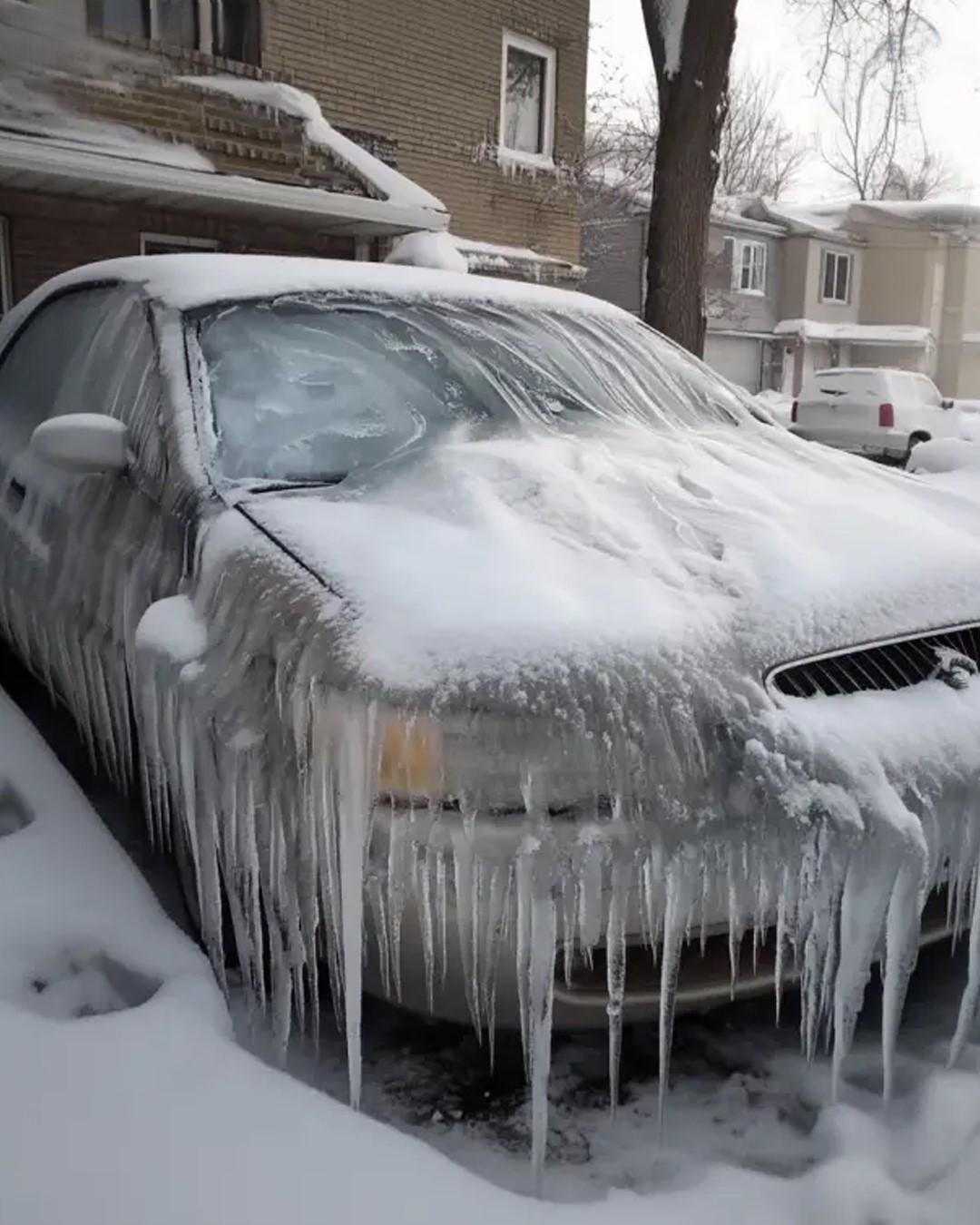That very night, a loud whooshing noise startled me awake. Rushing to the window, I braced myself for another sabotage. But instead, I saw a burst water hydrant blasting a powerful jet of water straight at Tom’s house. By morning, his once-pristine home and fancy SUV looked like something out of an ice sculpture contest.
People in the neighborhood couldn’t stop talking about Tom’s “ice palace.” He spent half the day outside, chipping and scraping to free his car and front door from the thick layer of ice. Despite everything he’d done, I decided to help him. I grabbed my trusty ice scraper and walked over, fighting back a grin.
“Need a hand?” I asked.
He stared, baffled. “After everything, why on earth would you help me?”
I shrugged. “Maybe I’m just a better neighbor than you.”
We spent hours working in near-silence, cracking ice off his SUV and clearing his walkway. By the time we finished, Tom was shivering and exhausted. I headed home, figuring that was the last we’d speak of it. But the next morning, he knocked on my door, holding an envelope.
“I owe you an apology,” he said, voice subdued. “And this.”
Inside the envelope was $5,000 in crisp bills. “For your car,” he explained. “Fix it up or buy a new one. I… I’m sorry.”
A week later, my old sedan gleamed in the driveway—fresh paint, new tires, and a rebuilt engine. It stood out among all the luxury cars, and I felt a jolt of pride every time I turned the ignition. Occasionally, I’d catch Tom eyeing it. Sometimes he’d look away quickly, other times he’d give a subtle nod, like he’d finally seen its worth.
Dad always told me that real class has nothing to do with money—it’s all in how you treat people. Seeing Tom soften up, even just a little, confirmed that sometimes karma and a bit of kindness can do more than any argument ever could. And I’d rather live by Dad’s ideals than stoop to anyone else’s pettiness.
